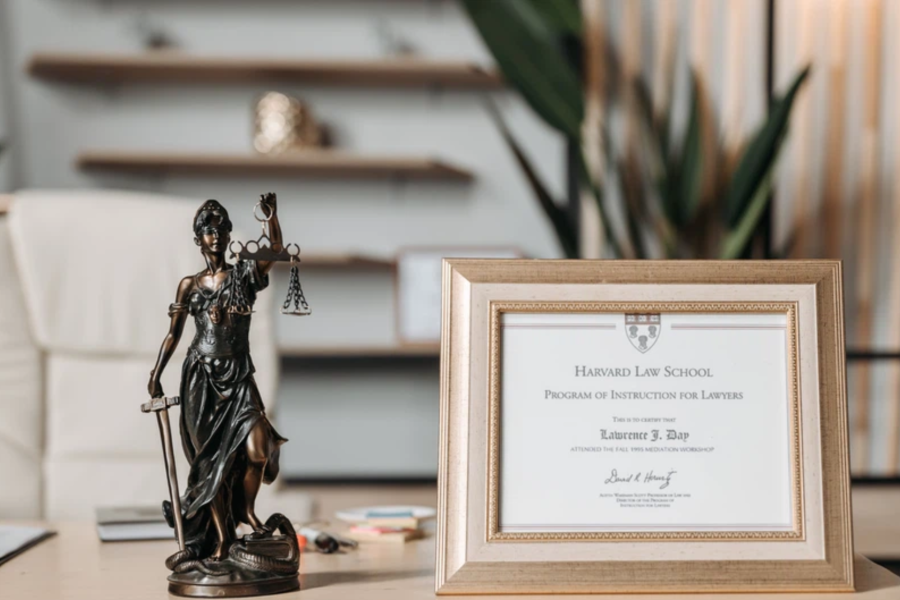
Where to make sure South African qualifications and degrees are legit
False qualifications and fake degrees are an increasing problem in South Africa. Dr Hennie Roos is one of South Africa’s most notorious medical malpractice cases, having faced approximately 26 complaints of misconduct until his removal from the Health Professions Council of South Africa. The Hawks arrested an Eastern Cape “teacher” for teaching with false qualifications in March this […]

False qualifications and fake degrees are an increasing problem in South Africa.
Dr Hennie Roos is one of South Africa’s most notorious medical malpractice cases, having faced approximately 26 complaints of misconduct until his removal from the Health Professions Council of South Africa.
The Hawks arrested an Eastern Cape “teacher” for teaching with false qualifications in March this year. In 2021, The South African reported on a fake biokineticist in Klerksdorp.
Qualifications and registration numbers can’t be accepted at face value, but should be checked. How can you be sure that your doctor is registered, or that your teacher qualified to be one?
ALSO READ: Hawks busted a FAKE TEACHER
Here’s where to check various South African qualifications and degrees when you’re in doubt.
ABOUT UMALUSI
A recent Umalusi media statement from 23 June warned against “bogus online schools and websites that sell fake certificates.”
Umalusi is one of South Africa’s main education accreditation bodies, dealing with general and further education and training.
“Some institutions circulate fake Umalusi accreditation certificates or fake emails purporting to be accredited by Umalusi.” says the statement.
A logo (or reference number) doesn’t mean a course, certificate, or email is legal or accepted. Anyone can include a logo or number, but is that number really on the system?
Qualifications like a South African Matric certificate or degree course must be verified with the correct body. If the information doesn’t agree with what’s on the system, a qualification or institution could be false.
However, Umalusi isn’t the only regulatory body in South Africa.
Benele Lukhele, the chief academic officer for the University of Cape Town’s (UCT) online High School, was quoted saying to Eyewitness News that the South African Comprehensive Assessment Institute (SACAI) also functions under Umalusi.
Qualifications may also be registered with the South African Qualifications Authority (SAQA), for higher education and training.
If you are not sure about a specific qualification, contact the Department of Basic Education, or the Department of Higher Education and Training
ALSO READ: New AARTO laws target reckless and negligent drivers
WHERE TO CHECK NATIONAL QUALIFICATIONS
According to SA Government resources, educational qualifications can be checked through the National Learners’ Records Database (NLRD).
The National Learners’ Records Database can be accessed through SAQA VeriSearch at this link.
The South African Qualifications Authority checks most national qualifications, such as matric and further education. However, SAQA’s website points out that it doesn’t verify “short courses, nor foreign qualifications or professional designations.”
WHAT UMALUSI CHECKS
Here’s what Umalusi verification is for, according to their website:
• Amended Senior Certificate (ASC)
• National Senior Certificate (NSC)
• National Technical Certificate (N3)
• The National Certificate Vocational (NCV)
• The General Education and Training Certificate for Adults (GETC:ABET)
The date also matters.
Qualifications after November 1992 must be checked through Umalusi. Qualifications before this date must be checked via the Department of Basic Education, or the Department of Higher Education and Training.
WHERE TO CHECK FOREIGN QUALIFICATIONS
According to the SA Government’s website, certain foreign qualifications have to be checked separately – and assessed by the South African Qualifications Authority (SAQA) to be accepted for practice in South Africa.
If you are not sure about the validity of someone’s degree from Universities not based in South Africa, you can also contact the individual university for the correct information on whether someone studied there (or not).
ALSO READ: Watch: Dr Nandipha Magudumana’s academic qualifications shakes Mzansi
WHERE TO CHECK SPECIFIC QUALIFICATIONS
After certain professions have qualified, it is also necessary to register with the correct regulatory body to legally use such a qualification.
Lawyers, educators, nurses, electricians, and doctors are amongst such qualifications.
When someone is registered to practice in their field, it means that:
• They have qualified to practice, and
• They have kept their conduct, fees, and information up to date and relevant.
But when someone is not registered with the correct board or authority, you could be dealing with a fake qualification – or sometimes, even someone who has been previously scrapped from the board.
ALSO READ: South African Airways increases scheduled domestic flights
Attorneys and Lawyers
Practicing attorneys and lawyers in South Africa must be registered with the Legal Practice Council (LPC).
Educators and Teachers
Educators and teachers must be registered with SACE, the South African Council for Educators.
Electricians
Electricians must be licensed with the Electrical Conformorance Board of South Africa (ECB).
Healthcare Professionals
Healthcare practitioners, including doctors and dietitians, have to be registered with the Health Professions Council of South Africa (HPCSA).
Offices and consultation rooms are issued with a practice number, which must match up with the information that is on the system.
Nurses and Midwives
Nurses and midwives have to be registered with the South African Nursing Council (SANC).
This article was originally published by Alex Coyne.